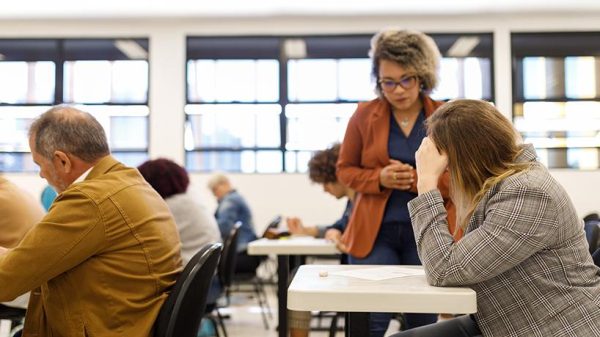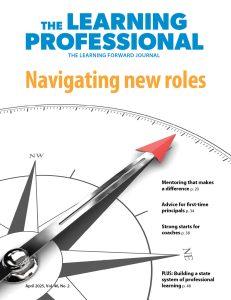On March 31, Learning Forward and featured guest Melissa Ellegood of Yuma Union High School District led a conversation on how instructional coaches can support educators – and take care of themselves – during this stressful time. This chat was based on an interview with Learning Forward senior consultants Eric Brooks, Heather Clifton, and Sharron Helmke.
As discussed in the interview, instructional coaches are a trusted source of support for teachers and leaders, and that support is needed now more than ever. Coaches are poised to help, but have questions of their own, including how to connect meaningfully with educators in the absence of face-to-face communication. We were excited to have more than 100 people participate in this #VirtualCoaching chat. Participants shared some of their most pressing challenges that they are facing right now as instructional coaches, resources that have helped them and their team stay connected, and strategies to overcome stress. In case you missed the Twitter chat, below are the questions that we asked participants:
- How are you staying connected with your colleagues right now?
- What needs are teachers and leaders expressing to you?
- How are you prioritizing the many needs coming at you from all directions?
- For educators who are really struggling (e.g., those with no experience in online teaching), where do you start?
- How are you helping your school/district/colleagues address equity issues?
- What are you doing to take care of YOURSELF?
We had a lot of great contributions and recommendations made from participants in response to the above questions. Some big takeaways from the Twitter chat are:
- Educators are using a variety of platforms to stay connected with their colleagues. Many participants are using a mixture of the following: Zoom, Google Hangouts, Google Meet, CANVAS, Slack, private Facebook groups, group text messages, Facetime, and many more.
- Teachers and leaders are needing help with technical support, managing workloads, curriculum, streamlining and having a clear focus, guidance on how to organize and deliver lessons virtually, gathering resources, and offering strategies to communicate with parents and students.
- Based on the responses from educators, there is no one way that works best to prioritize the many needs coming at educators during this unprecedented time. While traditional to-do lists work for some, others depend on structures and systems being created by leadership, some have prioritized tasks by who it affects or helps (for example, students and families first), and many reported that taking care of themselves first has equipped them to be helpful to others.
- Coaches are helping teachers who are struggling by finding online learning communities for them, reminding teachers that their “questions, feelings, and ideas are worthy,” by starting with a growth mindset approach that not everything happens overnight, starting with their well-being, and in the words of Joellen Killion, “start with just checking in and listening.”
- Educators are trying to address equity issues by considering English learners (ELs), students with no access to technology, students with no internet access, and students from low-income households by focusing on individual needs and differentiating supports.
- While instructional coaches are finding ways to support teachers, they have also found ways to take care of themselves. For instance, many coaches are reaching out to their mentors, scheduling uninterrupted time for themselves throughout the day, taking daily walks outside, meditating, journaling, cooking, and much more.
You can view the archived version of the full chat here or view all of the tweets from the chat below. To be notified of future Twitter chats, follow us on Twitter @LearningForward. If you would like to start your own discussion with other educators to help you navigate these times, visit our new COVID-19 Support community. Thank you to our featured guest and participants for contributing to this great conversation. We hope you found some of these insights and strategies from educators helpful.
COVID-19 Statement | Resources | Support Community









